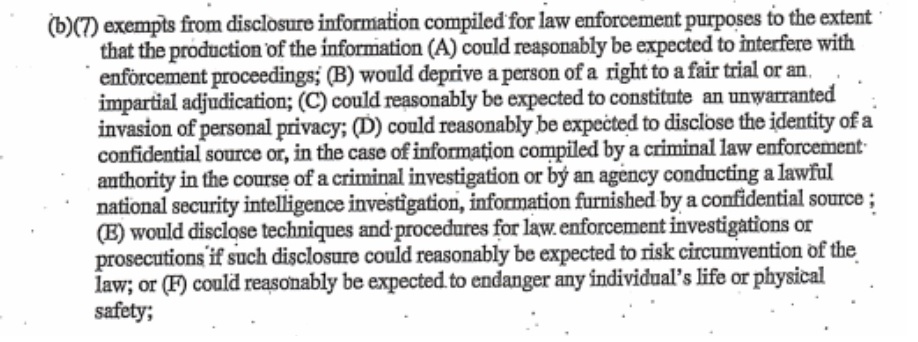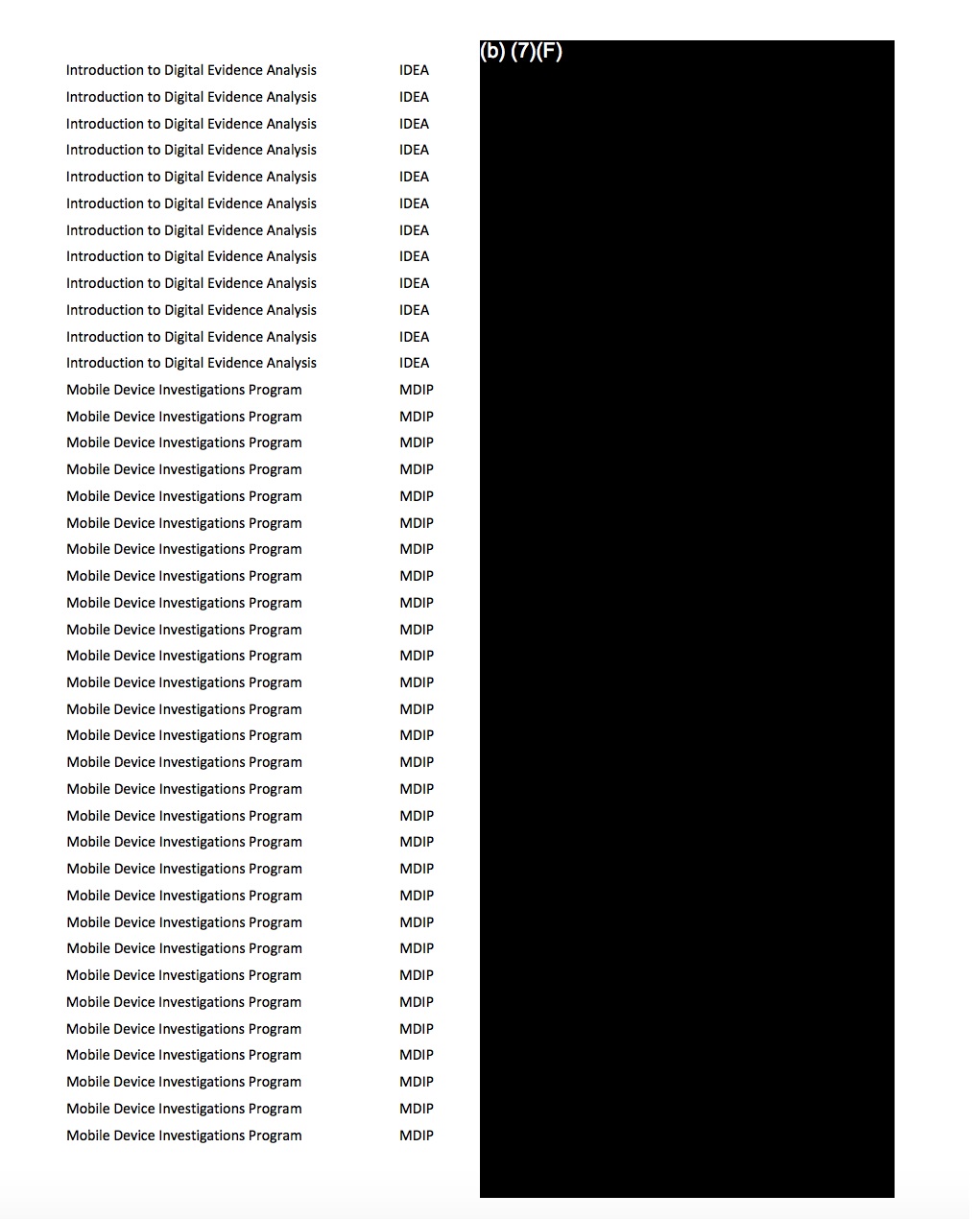With Sunshine Week just around the corner, we wanted to count down the days to our favorite time of year with a closer look at what’s going on behind the black bars: the nine federal FOIA exemptions. Today, strap yourself in for the long-haul because we’re looking at b(7) - the law enforcement exemption.
Exemption Name: b(7) a b c d e f

AKA : “The Law Enforcement Exemption” “Somewhere A FOIA Officer is Reciting the ‘Those Walls have to be Guarded by Men with Guns’ Speech”
Common Reactions: “Hey, look who’s being investigated by the FBI!” / “Oh crap, am I going to get investigated by the FBI?”
What it says: Records or information compiled for law enforcement purposes, but only to the extent that the production of such law enforcement records or information:
A. Could reasonably be expected to interfere with enforcement proceedings
B. Would deprive a person of a right to a fair trial or an impartial adjudication
C. Could reasonably be expected to constitute an unwarranted invasion of personal privacy
D. Could reasonably be expected to disclose the identity of confidential source, including a state, local, or foreign agency or authority or any private institution that furnished information on a confidential basis, and, in the case of a record or information compiled by a criminal law enforcement authority in the course of a criminal investigation or by an agency conducting a lawful national security intelligence investigation, information furnished by a confidential source
E. Would disclose techniques and procedures for law enforcement investigations or prosecutions or would disclose guidelines for law enforcement investigations or prosecutions if such disclosure could reasonably be expected to risk circumvention of the law
F. Could reasonably be expected to endanger the life or physical safety or any individual.”
What that means: b(7) is actually six separate exemptions, all concerning law enforcement records. Breaking it down for each one, we’ve got …
A. There’s an open/ongoing investigation. As Emma Best has written about before, the guidance surrounding the proper use of b(7)a makes it pretty clear that this should only be used under those circumstances, not just because an agency is thinking about investigating them at some point.
B. Similar to b(7)a, but for an imminent trial - “imminent” being the operative word.
C. Basically the b(6) exemption, but specifically applied to law enforcement records. Hunter S. Thompson’s wife, Anita, has her weight redacted from her driver’s license under b(7)c in his Federal Bureau if Investigation file.
D. Anything that might disclose a confidential informant - expect to see a lot of these in old FBI files.
E. “Law enforcement techniques” which more broadly means anything that they do that that they don’t want you to know about - use of emerging surveillance technologies, for example.
F. Information that would put people - typically law enforcement - at risk. As you can imagine, that one’s open to a lot of interpretation.
Who uses it? Department of Justice and Homeland Security are in a dead heat each year to see how much they can exempt under b(7).
Silliest example of its use: We touched on a few above, and frankly, there are just too many to mention, so we’ll limit it to three.
Here’s Walt Disney’s file being redacted to protect the identities of centenarians confidential informants …

the Drug Enforcement Administration citing the law enforcement technique exemption to withhold the name of a law enforcement technique that’s “constitutionally valid” …

and finally, DHS arguing that knowing which state and local police departments received federal training would put lives at risk.

What you can do about it: For the most part, these exemptions have clear intended uses and reasons for existing - where things get dicey is when agencies use them as a blanket ward against releasing any details of the agency’s operations. Fortunately in those cases, you do have the law on your side. Push back, demand specifics about why exemptions are being applied, and don’t be afraid to threaten a lawsuit.
Any other resources? FOIA Wiki again comes through with list of relevant caselaw. However, in this case, it might be time to send in the big guns. Give you local American Civil Liberties Union chapter or the Electronic Frontier Foundation a call. If it’s an especially egregious abuse of b(7), they might be able to offer some advice.
Happy appeals! Any other b(7) tips we left out? Let us know via email, on Twitter, or on Facebook.
Image via Obama White House Archives




